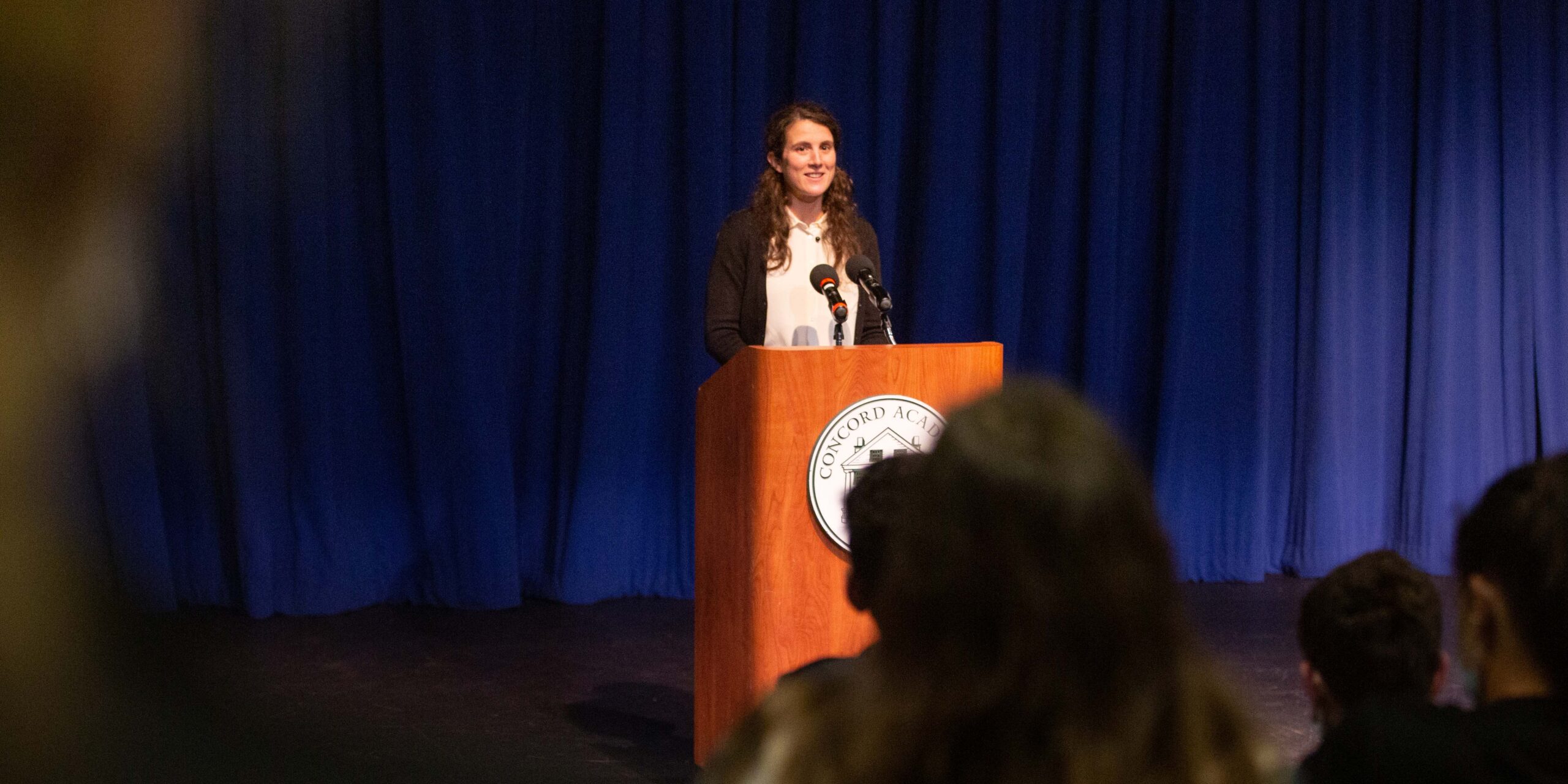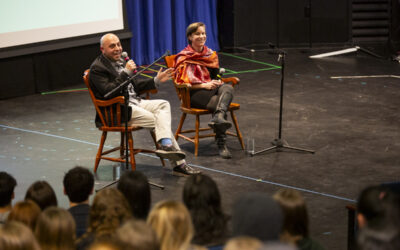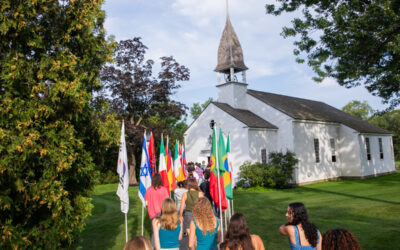
In her work as an environmental journalist and author, Tatiana Schlossberg aims to engage her audience around environmental issues instead of scaring them. “Fear is not a powerful motivator,” Schlossberg said in a lecture at Concord Academy on Monday, October 25. Her recent book, Inconspicuous Consumption: The Environmental Impact You Don’t Know You Have, explains how consumers fit into “larger dynamics and structures” of the environment. “I don’t think we should feel individually guilty about climate change,” Schlossberg said. “I think we should feel collectively responsible for building a better world.”
Schlossberg, daughter of alumna Caroline Kennedy ’75, kicked off this annual lecture series, which welcomes environmental scientists, advocates, and experts to speak to the CA community—this year under the theme of environmental justice. Schlossberg joined CA for a discussion about the issue of environmental justice surrounding coal ash.
Schlossberg began by asking the audience to consider how the internet uses electricity. While many conceptualize the internet as an abstract space, Schlossberg encouraged her audience to consider the physical network and infrastructure systems that allow the internet to exist. Many of the data centers that make up these systems are located in states that burn fossil fuels to generate electricity, such as Virginia and Ohio. In fact, 70% of global internet traffic passes through one data center in northern Virginia. These data centers use a tremendous amount of energy and therefore rely on the burning of fossil fuel. The byproduct of burning coal is a dangerous substance known as coal ash, a pollutant Schlossberg has written about extensively.
Coal ash ponds, depositories for the byproducts of burning coal, can be a serious threat to the surrounding communities, Schlossberg said. Coal ash contains lead, mercury, arsenic, and other toxins and carcinogens. When not properly lined, coal ash ponds come into contact with groundwater, which reaches drinking water. The majority of communities surrounding these coal ash ponds are historically disenfranchised groups such as low income communities, people of color, and rural communities. Disasters such as the 2008 Kingston coal ash spill in Tennessee have caused severe damage to the surrounding environment and people. Schlossberg notes that the negative impact coal ash has on communities is not limited to these disasters, though; daily exposure to the harmful toxins in coal ash poses danger to communities as well.
Schlossberg said that prior to her work as a climate journalist, she had never heard of coal ash, which she considers indicative of a larger problem: Environmental issues that impact disenfranchised communities do not get as much attention as problems in wealthy, white communities. Whereas considerable attention has been paid to the impact of greenhouse gas emission on climate change, issues of pollution, such as coal ash, receive far less coverage.
Schlossberg encouraged the CA community to continue to learn about their environmental impact. She reminded the audience, though, that “no one can do everything.” Finding one environmental issue to learn about and take action on can have an impact, she says. This dedication to an issue, she said, impacts your behavior, may influence friends around you, and can lead you to other environmental interests. Schlossberg also encouraged students to start within their own communities and suggested researching and joining local organizations that are making positive environmental change. Schlossberg said, “We are all part of the problem, so we should all be part of the solution.”


